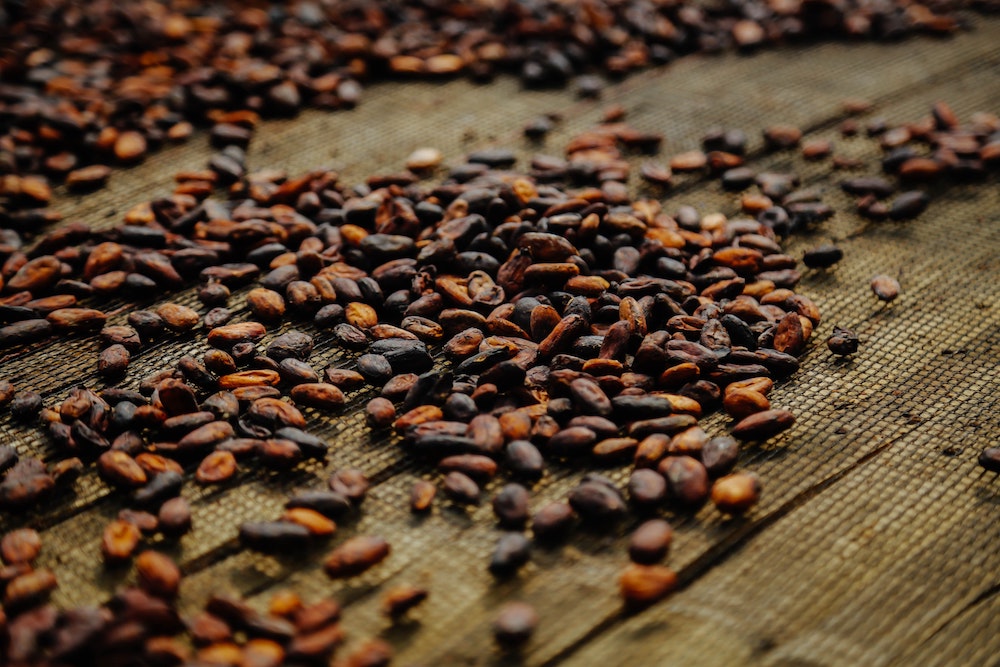5 Coffee Alternatives for Sustainable Energy

Coffee is healthy, but it has its downsides for consumers once they depend on it as their primary energy source. That's where coffee alternatives come in.
Coffee alternatives work to energize the body through nourishment. They're often sought out for resetting the adrenals, promoting focus, and maintaining the morning ritual of making a brew.
Whether you're leaving your morning cup of joe for good, doing a caffeine reset, or want to change things up—coffee substitutes make the process of undergoing potential caffeine withdrawals more sustainable. They also provide ample nutritional benefits along the way.
Matcha Green Tea
Matcha is for those who want to quit coffee without jumping ship on caffeine completely. Among all of the coffee alternatives we'll be sharing, matcha has the most caffeine (think approximately 90 mg).
Matcha contains more caffeine than conventional green tea because the entire leaf is used as a powder. The transition from coffee to matcha is smooth for most people. Expect minimal withdrawals.
A ceremonial matcha like our Wild Foods Matcha is prolific for boosting mood and cognition. A 2017 intervention study published in Food Research International found that after consuming matcha, participants showed significant improvements in "basic attention abilities and psychomotor speed in response to stimuli over a defined period."
The brain-boosting power of matcha is likely due to a few specific compounds found in the brew:
- L-theanine (a calming amino acid).
- Epigallocatechin gallate (EGCG) (is a polyphenol with many metabolic benefits).
- Caffeine (you know this one well enough).
Medicinal Mushroom Superfood Blends
Medicinal mushrooms such as reishi, chaga, and lion's mane benefit neuronal health. These powerful mushrooms contain no caffeine.
Many mushroom blends, such as our Wild Cocotropic Superfood Cocoa Drink Mix, contain cocoa, a wise choice for flavor and added benefits. Our blend contains the mushrooms listed above (reishi, chaga, and lion's mane). We also add turmeric and maca, making this one of our most potent coffee alternatives.
Adaptogenic Herbal Blends
Coffee is a taboo subject. One of the topics that makes it so is adrenal function. This is because, for many people, coffee increases cortisol and adrenaline levels. This concoction of stress hormones is released from the adrenal glands.
Adaptogenic herbs rebuild adrenal function while making the body and mind more resilient to stress. Here are some popular adaptogenic herbs that work well as coffee alternatives.
- Ashwagandha: Increases energy, libido, and resistance toward stress. Make sure to consume the root.
- Ginseng: Popular in traditional Chinese medicine (TCM), ginseng is commonly sought out for its potent ability to improve brain function, making it a unique adaptogen in our books (and many others).
- Eleuthero: Commonly referred to as "Siberian ginseng," eleuthero has been used for thousands of years to relieve anxiety and depression and recover from stress.
- Shatavari: Its anti-inflammatory, antioxidant, and antidepressant capabilities make it right among our list of adaptogens.
These coffee alternatives can be found in blends with other herbs, such as chicory and cacao. We suggest drinking it this way for better taste and compounded adaptogenic powers.
Golden Milk
Golden Milk is an ayurvedic blend of coconut milk, ginger, cinnamon, ashwagandha, and turmeric with black pepper. Many people enjoy the taste right away. For others, it takes getting used to.
Our Wild Golden Milk Powder is a favorite. We add stevia, a hearty zero-glycemic sweetener that compliments our blend of spices very well. We also include other goodies, such as inulin (a prebiotic) from Jerusalem artichoke, ashwagandha, and pumpkin seed powder.
As for the benefits of golden milk—they are abundant. A caffeine-free beverage, most people enjoy drinking golden milk of its main ingredient: turmeric. Turmeric is prized for the antioxidant, anti-inflammatory, antiviral, and antifungal properties of its active compounds called curcuminoids.
